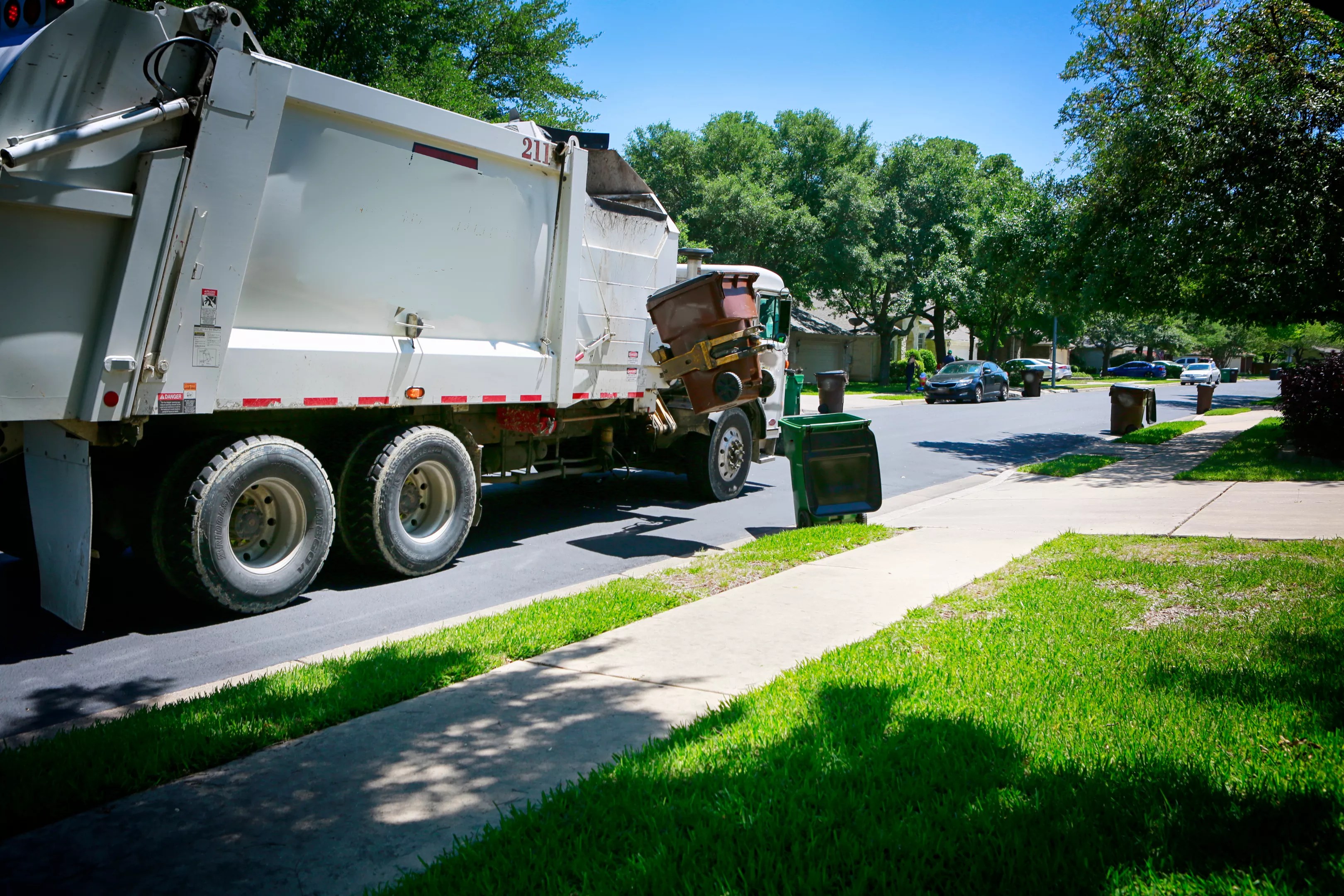
Adobe Stock

Audio By Carbonatix
Angered Dallasites packed into Dallas City Hall on Wednesday, ready to give the horseshoe a piece of their mind about upcoming changes to alley trash services. About 50 protesters, led by Libby Collet, who started a petition at the center of the uproar, stood in solidarity as their fellow trash warriors told the City Council about the burdens changing from alley to curbside trash pickup would create.
“Without public input, without council oversight and with limited analytic data justifying these changes, the city is proposing the elimination of alley service, citing safety equipment, utilization and financial concern without providing any transparency around their conclusions,” said James Collet. “…This plan fails to address the city’s existing responsibilities to residents.”
Damage to private property and cars on Dallas’ narrower streets, usually without sidewalks, costs associated with frontyard redesign burdening homeowners, limited trash capacities, neighborhood aesthetics and stretching the demands on city-provided home helpers who assist the elderly take their trash to the curb were all cited as hazards posed to residents.
The change will affect about 27% of customers receiving alleyway trash services. A map of affected alleys can be found on the city’s website.
For at least a year, the city’s sanitation department, led by Director Cliff Gillespie, has been trying to phase out alley trash services. In June 2024, the sanitation department first briefed the council on ending all alleyway trash services across the city, but the plan was scrapped. This June, Gillespie proposed ending alleyway trash in alleys less than 9 feet wide, affecting 19,000 homes starting Jan. 19, 2026, and then another 7,000 on July 20, 2026.
“It’s been a fight before,” Collet said to the Observer in July. “They backed off on it, but it sounds like now they’re digging in and shoving it down our throats.”
Gillespie does need council approval for a condensed version of ending alleyway trash services on select streets. But ending the services would create great burdens for the people who have been taking their trash out the back door since they settled in Big D, especially the elderly and disabled. This is why Collet began her petition. In July, the petition had over 4,000 signatures; now, it’s approaching 10,000, or about 30% of affected homes.
“This is a citywide issue that touches pockets of neighborhoods in all 14 districts,” Collet said. “Dallas deserves better than one-size-fits-all governance. We deserve a city that listens, adapts and respects the communities it serves.”
Why Change?
The sanitation department says changing to curb trash services will improve safety, make services more reliable, allow for the use of more automated trucks and reduce damage to private property and collection trucks.
The presence of automated trucks, which load from the side using an automatic arm rather than the two-man manual backload operation that alleys require, has been the source of controversy. The side-loading trucks require more space to operate, but they’re much cheaper and allow the city to cut labor costs.
However, in an email, Gillespie clarified that the city has not invested in any new side-loading trucks and says the age-old alleys built specifically for trash collection have been outdated by new federal regulations.
“Dallas’ waste collection fleet evolved over time as equipment manufacturers began building to those new specifications to allow for greater capacity and efficiency,” he wrote. “Many older alleys in Dallas are only 8-9 feet wide and weren’t built to accommodate modern equipment. These narrow spaces pose safety risks for workers and result in recurring damage to fences, utility poles, gas meters and collection vehicles.”
But Collet and her team of protestors say the trash service plan seems to have been orchestrated from behind the desk without any proper measurements or research.
“The sanitation director admitted at a recent town hall meeting that he, nor his staff, has not been to the majority of alleys being impacted by this decision,” said Dallasite Susan Parker. “In effect, the department is shifting responsibility from the city to homeowners without understanding the consequences.”
Gaining City Council’s Support
Collet’s efforts have not been futile.
Before the City Council meeting, she met with Bill Roth, the newly elected District 11 representative, to discuss the changes. The night before the meeting, District 13 and District 9 Council members, Gay Donnell Willis and Paula Blackmon, issued a joint memo addressed to City Manager Kimberly Bizor-Tolbert, requesting an impact assessment by Oct. 1 and a delayed launch date for phase 1 of the curbside conversion.
“Thousands of residents value their alley collection service and want their concerns on the proposed transition to be taken seriously,” reads the memo. “While this decision ultimately rests with the Director of Sanitation, we must continue to advocate for the residents we represent and ensure their voices are given thoughtful consideration – particularly in shaping solutions that offer flexibility considering the reasons this conversion decision was made.”
Collet is hopeful about gaining support within the council, hoping that Gillespie can be persuaded by the power in numbers.
“This is not just a logistical failure. It’s a breach of trust,” Collet said.. “The City created alleys to beautify neighborhoods and isolate city utilities and communication services. Now it’s abandoning that vision without public input, without Council oversight, and without sufficient data.”